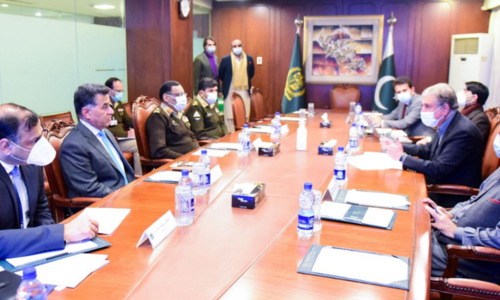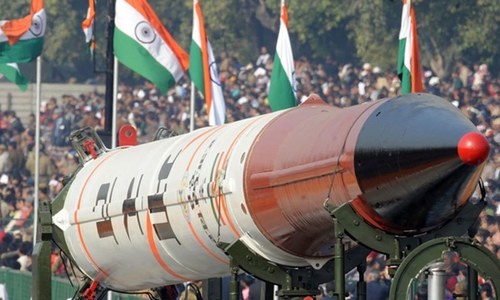India’s rapid economic growth and military build-up over the past three decades has catapulted it to a pre-eminent position both at the regional and global level, making it a strong contender for ‘great power’ status in the years to come.
As a neighbour, it is incumbent upon Pakistan to assess India’s internal, regional and global policy aims and directions because they directly affect its security and economic well-being.
As the famous dictum by Sun Tzu goes, “If you know the enemy and know yourself, you need not fear the result of a hundred battles.”
According to the World Bank, India occupied fifth position in world economies in 2022 with GDP in nominal dollar terms amounting to $3,385 billion as against $25,462bn and $17,963bn for the US and China respectively.
By 2030, India is expected to move up to the third slot, with China and the US occupying the first and second positions. By way of comparison, Pakistan’s GDP in 2021-22 was estimated at $376bn only.
India’s rapidly growing economic strength has enabled it to increase its military expenditure at a fast pace.
According to Sipri, an independent research institute looking into various aspects of armed conflict, India’s military expenditure was estimated at $81.4bn in 2022, ranking fourth globally.
Pakistan’s military expenditure, according to official estimates for 2023-24, is projected to be $8bn only.
India’s higher military expenditure has enabled it to build up its military strength in various fields at a fast pace. Its fast-developing strategic partnership with the US and its allies has added to its military weight, upsetting the strategic balance in South Asia to Pakistan’s disadvantage.
India is pursuing the goal of establishing its regional hegemony.
India poses an enduring threat to Pakistan’s security and economic well-being if one considers the dangerous trends in its internal, regional and global aims and policies.
Internally, the growing sway of Hindutva and Hindu extremism as propagated and practised by the Narendra Modi-led BJP and, arguably, a large majority of Indians has dangerous implications not only for India’s religious minorities but also for Pakistan which, despite its shortcomings, is seen as an embodiment of Islamic ideology, which teaches social equality. In contrast, the caste system is part and parcel of the Hindu faith.
At the regional level, India is systematically pursuing its goal of establishing its hegemony in South Asia and the Indian Ocean region.
Henry Kissinger in his book, ‘World Order’ (2014), takes note of India’s hegemonic designs and points out that India has established “in practice a special position in the Indian Ocean region” and like the American Monroe Doctrine conducts “its policy on the basis of its own definition of a South Asian order”.
India views Pakistan as a major obstacle in the fulfilment of its hegemonic designs in South Asia. A large section within India entertains hopes of the reversal of the partition, which led to the creation of a Muslim-majority Pakistan. The causes of many Pakistan-India disputes can be traced to these two fundamental factors.
At the global level, as pointed out by well-known Indian security analyst C. Raja Mohan, India wishes to take its place as one of the great powers, that is, a key player in international peace and security or as a major pole in the emerging multipolar world.
Its membership of G-20 and BRICS, the grouping of Brazil, Russia, India, China and South Africa, and its quest for permanent membership of the UN Security Council should be seen in that context.
India’s long-term and rapidly-developing strategic partnership with the US and its allies, bilaterally or through such forums as the Quad (Australia, India, Japan and the US), promotes its economic progress and military build-up and helps it counter Beijing’s ingress in South Asia and the Indian Ocean region, while serving the US policy of containment of China.
However, India is too big to be reduced to the status of a satellite of the US. Therefore, there will be occasional policy differences between the two as they pursue their respective national agendas.
The foregoing analysis underlines the need for Pakistan to stand on its own feet through policies of austerity and self-reliance, strengthen its political stability, and develop itself economically and technologically on a fast track, while maintaining a credible security deterrent and following a low-risk foreign policy. Its failure to do so will expose it to grave dangers internally and externally.
The writer is a retired ambassador and author of Pakistan and a World in Disorder — A Grand Strategy for the Twenty-First Century.
javid.husain@gmail.com
Published in Dawn, July 29th, 2023

































